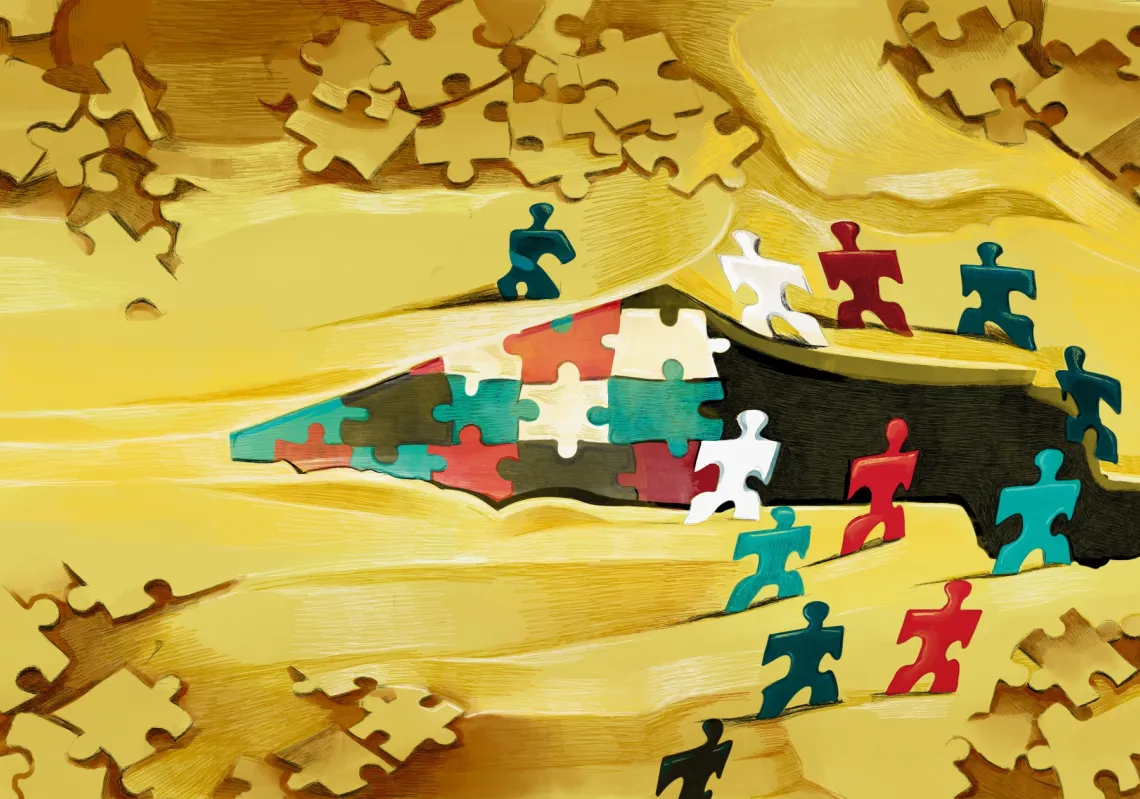Egypt has called for an end to the Israel-Iran conflagration and a resolution via peaceful means. It has several reasons to be against the current escalation, including political, economic, geostrategic, and domestic—and they are all linked to Egypt's plans for the future.
For a couple of years now, Egypt and Iran have been slowly turning the page on their historic animosity. Today, they are more like acquaintances who share the same friends. For instance, they are both members of the BRICS group, which Russia and China dominate.
This Cairo-Tehran rapprochement dates back to March 2023, when Chinese-facilitated talks led to a thaw in relations between Saudi Arabia and Iran. The Egyptians and the Saudis are close allies.
However, before that, five decades of tension between Cairo and Tehran were largely driven by Egypt’s desire to maintain the ‘party line’ alongside its Gulf allies. And ever since Iran vehemently opposed the 1979 Egypt-Israel peace treaty, Cairo has long seen Tehran as a force for regional instability.

And to some extent, it still does, given its support for non-state actors such as Hezbollah, the Houthi militia in Yemen, and Hamas. Egypt also disliked Iran’s exertion of influence in Syria and Iraq over recent years.
Yet Egypt developed its own way of navigating ideological differences and regional rivalries. It is friends with the Chinese and the Russians, for example, yet it still can cooperate with the Americans and enjoys excellent relations with the Europeans. An ally of Greece and Cyprus, it is also now developing warm relations with Türkiye. In short, it aims to achieve a balance.
Removing impediments
In 2014, President el-Sisi (who was not yet in office) stated that Egypt's relations with Iran would have to pass through the Gulf states. When Saudi Arabia and Iran shook hands, Egypt was always expected to follow suit—and it did. Earlier this month, Iranian Foreign Minister Abbas Araghchi visited Cairo for the second time in nine months, stating that the last impediment to improved relations with Egypt had already been removed (without specifying what it was).
Iran has made changes in the past to accommodate better relations with Egypt. In 2004, municipal authorities in Tehran announced that they would rename the city's Khaled Islambouli Street to Intifada Street. In 1981, Islambouli assassinated Egyptian President Anwar Sadat for having signed the peace treaty with Israel. Both Cairo and Tehran appear to have their own motivations for initiating a new phase in bilateral relations.











